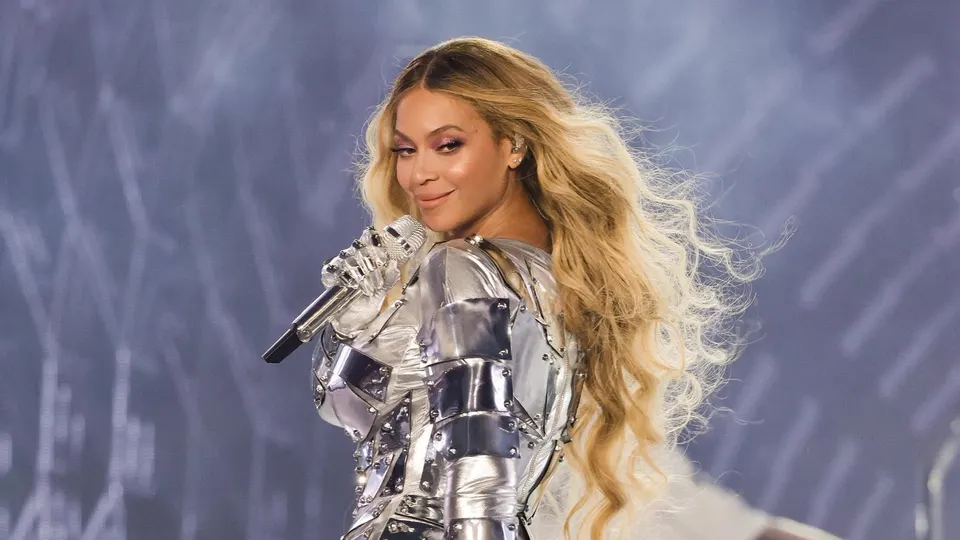Nicki Minaj Goes After Steve Stoute, Jay-Z, and Tidal: A Deeper Look Into Music Industry Power Struggles
Nicki Minaj is not one to shy away from controversy or calling out industry giants when she feels wronged. Recently, she reignited a simmering dispute involving her past with Jay-Z’s streaming service, Tidal, and took aim at Steve Stoute, a longtime affiliate of Jay-Z and a key figure in the music business. These issues, rooted in bad business deals, betrayals, and larger questions about fairness in the industry, reveal some of the undercurrents shaping the careers of even the most successful artists like Minaj.
The Tidal Deal: An Unpaid Promise
The drama between Nicki Minaj and Jay-Z stretches back to 2015 when Jay-Z launched Tidal, a streaming service designed to rival platforms like Apple Music and Spotify. The platform was intended to be a revolutionary music service owned in part by the artists themselves. Sixteen high-profile artists were given stakes in the company, including Minaj, Beyoncé, Rihanna, Madonna, and Kanye West. This seemed like a promising venture for all involved, with Tidal offering exclusive music and video releases in exchange for artist equity.

However, the reality for Minaj, as she recently revealed, was far from profitable. According to her, despite investing heavily in promoting Tidal by giving them exclusive rights to stream her music and videos, she never saw any financial returns from the platform. This revelation came as a shock, especially since Jay-Z had sold a majority stake in Tidal to Twitter’s Jack Dorsey in 2021 for $297 million, yet many of the original artist-owners were left out of the profits.
Minaj, in her characteristic blunt style, took to Twitter to express her frustration. “I didn’t even get one red penny when no one promoted it more than me outside of Beyoncé LOL child,” she tweeted, highlighting her deep disappointment with the venture. Her words were loaded with both sarcasm and bitterness, as she pointed out that despite her heavy involvement, she was not compensated for her work.
Kanye and Other Artists Speak Out
Minaj was not alone in feeling betrayed by the Tidal deal. Kanye West, another original co-owner, also pulled out of the venture, claiming that Jay-Z owed him $3 million. This sentiment echoes across other artists who were part of the initial promise of equity, only to find out later that their shares in the company amounted to very little. The idea that these prominent figures, all of whom contributed significantly to the platform’s early growth, didn’t benefit financially has created a narrative of exploitation, even among the industry’s elite.
In light of these revelations, it’s hard not to wonder how much of the business deals in the music industry are truly designed to benefit the artists, especially when it comes to streaming platforms that make millions off their content. Tidal, once touted as a service for artists by artists, appears to have followed a similar exploitative pattern seen in other parts of the industry.

Steve Stoute’s Defense of Jay-Z
When Minaj spoke out against her lack of compensation, Steve Stoute—Jay-Z’s longtime affiliate—felt the need to step in. Appearing on the Pivot podcast, Stoute defended Jay-Z and Tidal, criticizing Minaj for speaking out publicly. He claimed that Minaj left millions on the table because she didn’t sign certain paperwork, suggesting that her failure to complete the deal was the reason for her financial losses.
“I really don’t like when people who open up doors as Black people get on publicly like that. I think in that case, what Nicki did was wrong to bring up Tidal,” Stoute said, emphasizing that Minaj’s grievances should not have been aired out in public. According to Stoute, Tidal was a Black-owned streaming platform that provided artists equity and opportunities, and speaking against it only damaged its legacy.
Minaj, never one to let a statement like this slide, quickly responded. She refuted Stoute’s claims and added more details about her experience. She tweeted, “I received a call advising Tidal was sold and they made no money on the deal so all they could offer me was a million dollars. But wait, there’s more. The lawyer advised that Desiree (from Roc Nation) told me that I had 24 hours to sign the agreement or the offer was off the table.”
This message conveyed both frustration and anger, as Minaj felt she was being lowballed and pressured into signing a hush-money deal. She highlighted that her equity in the company was far more valuable than the meager million dollars she was offered, and that this attempt to silence her was an insult. Refusing the hush money, Minaj took the moral high ground, stating, “The grace of God is sufficient. I didn’t need their hush money.”
The Complex Web of Roc Nation and Its Influence
Minaj’s statements hint at broader issues within Roc Nation, the powerhouse management company founded by Jay-Z. Over the years, Roc Nation has managed some of the biggest names in the industry, and its influence extends far beyond music. However, with great power comes great scrutiny, and Minaj suggested that there’s more to the Roc Nation empire than meets the eye.
She hinted that Roc Nation may have had a hand in blocking a documentary she was working on, which potentially could have revealed details about her relationship with Meek Mill, who was once signed to Roc Nation. This, coupled with her broader criticisms of the company’s handling of the Tidal deal, paints Roc Nation as a company that protects its own interests at the expense of transparency and fairness for its artists.
Minaj Calls Out More Industry Players
As if the drama with Stoute and Jay-Z weren’t enough, Minaj didn’t stop there. She also took aim at other figures in the industry, using colorful nicknames to make her point. Among the names she mentioned were “short and stout D” (a clear reference to Steve Stoute), “laughy taffy alien” (potentially Jay-Z), and “de breath” (possibly radio host Fatman Scoop or Elliott Wilson). Each of these figures had, in Minaj’s view, played a role in either attacking her or defending Jay-Z.
Perhaps the most explosive accusation came when Minaj hinted at broader misconduct within the music industry, referencing abuse and exploitation that has been long rumored but rarely addressed. She asked pointedly whether some of these industry insiders were aware of or complicit in the alleged abuse of young artists like Aaliyah, Foxy Brown, and others during their time working with controversial figures like R. Kelly.
Conclusion: Minaj’s Fearlessness in the Face of Industry Power
Nicki Minaj’s outspokenness in calling out Jay-Z, Roc Nation, and Steve Stoute is yet another example of her fearlessness in an industry where silence is often bought. By airing her grievances publicly, she has reignited a conversation about artist exploitation, even among those who are supposedly co-owners or partners in business ventures like Tidal.
Her decision to reject hush money and call out those who wronged her serves as a powerful reminder that the music industry, despite its glamorous facade, is fraught with unfair deals and manipulative power plays. Minaj’s battle is far from over, but her willingness to confront these issues head-on is commendable. Whether or not her outbursts will lead to lasting change remains to be seen, but one thing is clear: Nicki Minaj is not backing down anytime soon.





